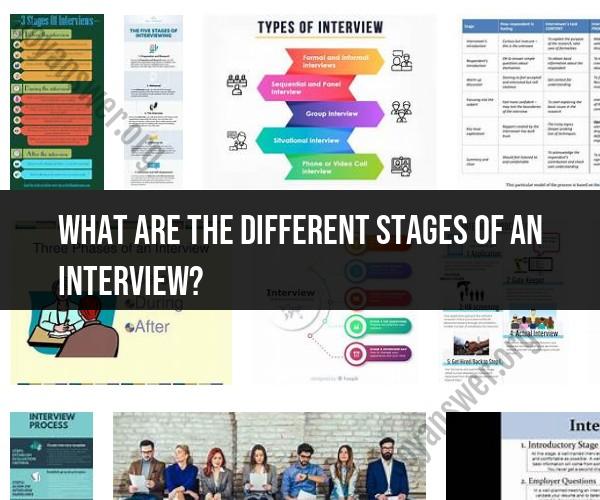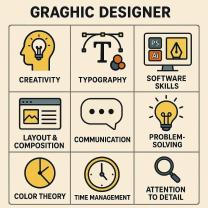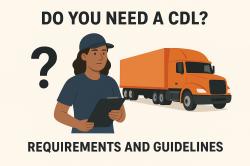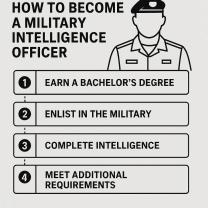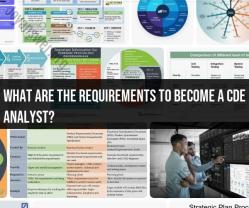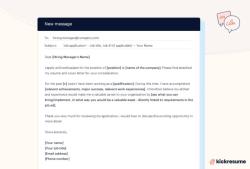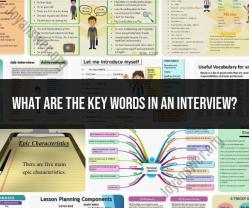What are the different stages of an interview?
The interview process typically consists of several stages, each serving a specific purpose in evaluating candidates for a job. Here are the common stages of an interview:
Application and Resume Screening: The process often begins when candidates submit their applications and resumes online. Employers or HR professionals review these documents to shortlist candidates who meet the basic qualifications for the job.
Phone Screening: After the initial resume screening, some candidates may undergo a phone screening interview. This is a brief conversation to assess the candidate's qualifications, interest in the position, and availability. It helps further narrow down the candidate pool.
First-Round Interview: The first formal interview is typically conducted in person, via video call, or over the phone. It may involve HR professionals or recruiters and focuses on assessing the candidate's qualifications, experience, and general fit for the role and the company.
Technical or Skills Assessment: For technical or specialized positions, candidates may be asked to complete a skills assessment or test to evaluate their expertise in specific areas. This can include coding tests, design challenges, or other job-related tasks.
Panel Interview: In some cases, candidates may have interviews with multiple interviewers at once, known as a panel interview. Each panel member may assess different aspects of the candidate's qualifications and fit for the role.
Behavioral Interviews: Behavioral interviews are designed to assess how candidates have handled specific situations in the past. Interviewers ask candidates to provide examples of their behavior, skills, and problem-solving abilities.
Second-Round Interview: After the initial interviews, some candidates are invited back for a second-round interview. This stage may involve more in-depth discussions about the candidate's qualifications, and it may include higher-level managers or team members.
Assessment Center: In some industries, candidates may participate in an assessment center, which includes various exercises, tests, and simulations to evaluate their skills, teamwork, and decision-making abilities.
Reference Checks: Employers often contact the candidate's references to verify their qualifications and gain insights into their work history and character.
Background Check: A background check is conducted to verify the information provided by the candidate, including employment history, criminal records, and education credentials.
Final Interview: The final interview is typically conducted with top candidates to make a hiring decision. It may involve senior executives or decision-makers within the organization. This interview may focus on cultural fit, alignment with company values, and long-term goals.
Job Offer: Once the company decides on a candidate, they extend a formal job offer. This offer includes details about compensation, benefits, and other terms of employment. Candidates have the opportunity to negotiate the offer.
Acceptance or Rejection: After receiving the job offer, candidates decide whether to accept or reject it. If accepted, they move forward with the onboarding process, which includes completing paperwork and preparing for their new role.
Onboarding: Onboarding is the process of integrating the new employee into the organization. It includes orientation, training, and getting acquainted with company policies and culture.
It's important to note that not all interviews include all these stages, and the specific stages can vary based on the company, industry, and position. Some organizations may have a more streamlined process, while others may have a more extensive and rigorous interview process. Candidates should be prepared for each stage and tailor their responses and preparation accordingly.
The interview process can be broken down into several distinct stages:
1. Preparation: This is where you will research the company and the position, practice answering common interview questions, and prepare your own questions to ask the interviewer.
2. Introduction: This is where you will meet the interviewer and make a good first impression. Be sure to dress professionally, arrive on time, and shake the interviewer's hand firmly.
3. Small talk: The interviewer may start with some small talk to help you relax and get comfortable. This is a good opportunity to learn more about the company culture and to ask the interviewer questions about their role.
4. Information gathering: This is the main part of the interview, where the interviewer will ask you questions about your skills, experience, and qualifications. Be sure to answer each question thoughtfully and provide specific examples.
5. Question and answer: This is your opportunity to ask the interviewer questions about the company, the position, and the interview process. Be sure to ask thoughtful questions that show you are genuinely interested in the position.
6. Closing: This is where the interviewer will thank you for your time and let you know when you can expect to hear back. Be sure to thank the interviewer for the opportunity and to reiterate your interest in the position.
Here are some additional tips for navigating each stage of the interview process:
Preparation:
- Do your research on the company and the position. This will help you to answer the interviewer's questions intelligently and to ask informed questions of your own.
- Practice answering common interview questions. This will help you to deliver your answers confidently and concisely.
- Prepare your own questions to ask the interviewer. This shows that you are interested in the position and that you have done your research.
Introduction:
- Dress professionally. This shows that you are taking the interview seriously and that you are respectful of the interviewer's time.
- Arrive on time. This shows that you are punctual and that you are organized.
- Shake the interviewer's hand firmly. This shows that you are confident and that you are eager to meet the interviewer.
Small talk:
- Be polite and respectful.
- Be yourself and be genuine.
- Avoid talking too much about yourself. Instead, ask the interviewer questions about their role and the company culture.
Information gathering:
- Listen carefully to the interviewer's questions.
- Answer each question thoughtfully and provide specific examples.
- Be honest and authentic in your answers.
- Avoid talking too much about your previous jobs. Instead, focus on your skills and qualifications and how they relate to the position you are interviewing for.
Question and answer:
- Ask thoughtful questions that show you are genuinely interested in the position.
- Avoid asking questions that can be easily answered by reading the job description or the company website.
- Be respectful of the interviewer's time and avoid asking too many questions.
Closing:
- Thank the interviewer for their time.
- Reiterate your interest in the position.
- Ask when you can expect to hear back.
By following these tips, you can navigate the interview process successfully and increase your chances of landing your dream job.
